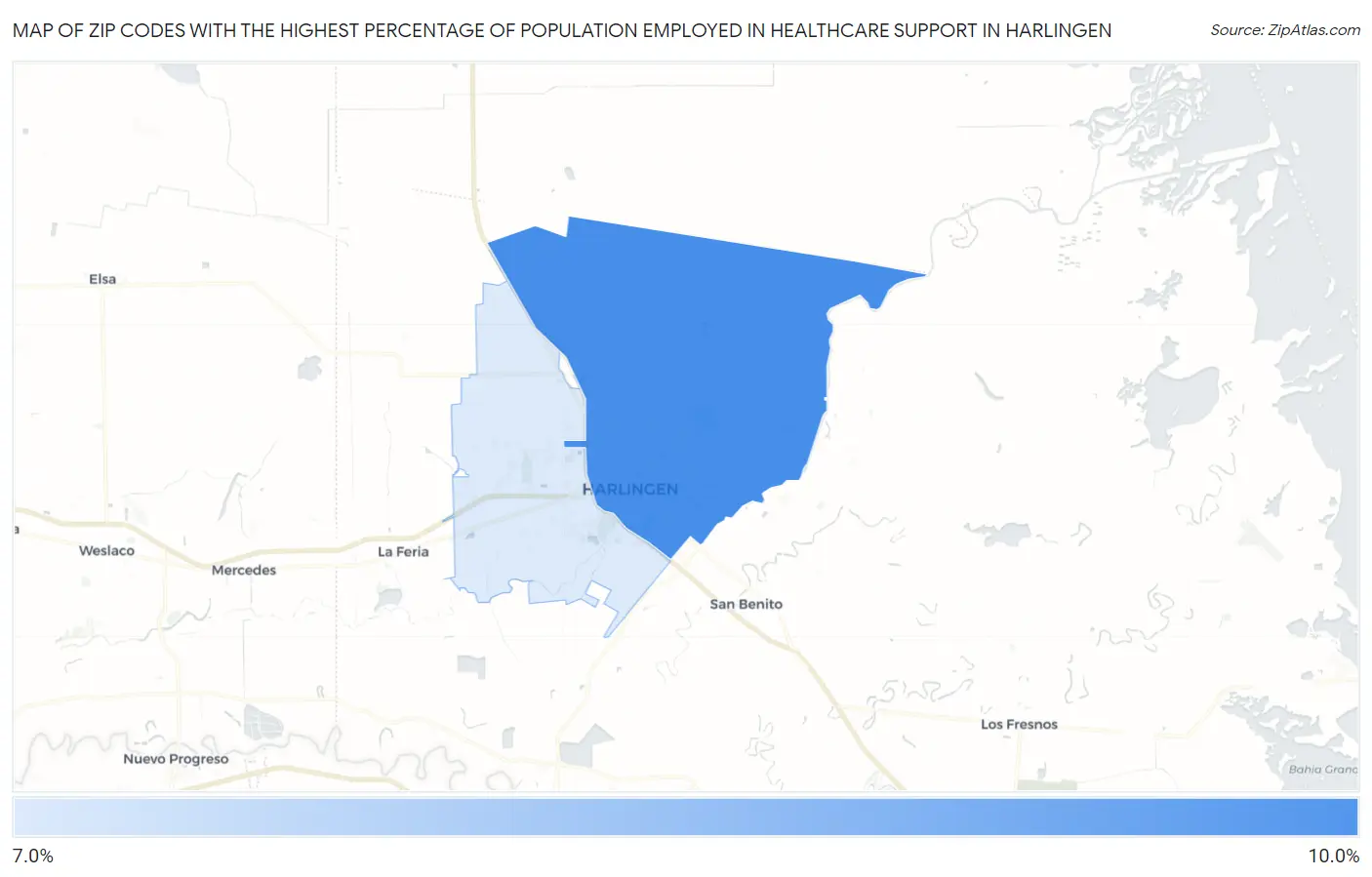Zip Codes with the Highest Percentage of Population Employed in Healthcare Support in Harlingen, TX
RELATED REPORTS & OPTIONS
Healthcare Support
Harlingen
Compare Zip Codes
Map of Zip Codes with the Highest Percentage of Population Employed in Healthcare Support in Harlingen
7.5%
9.9%

Zip Codes with the Highest Percentage of Population Employed in Healthcare Support in Harlingen, TX
| Zip Code | % Employed | vs State | vs National | |
| 1. | 78550 | 9.9% | 2.9%(+6.93)#98 | 3.3%(+6.58)#1,582 |
| 2. | 78552 | 7.5% | 2.9%(+4.56)#162 | 3.3%(+4.21)#2,897 |
1
Common Questions
What are the Top Zip Codes with the Highest Percentage of Population Employed in Healthcare Support in Harlingen, TX?
Top Zip Codes with the Highest Percentage of Population Employed in Healthcare Support in Harlingen, TX are:
What zip code has the Highest Percentage of Population Employed in Healthcare Support in Harlingen, TX?
78550 has the Highest Percentage of Population Employed in Healthcare Support in Harlingen, TX with 9.9%.
What is the Percentage of Population Employed in Healthcare Support in Harlingen, TX?
Percentage of Population Employed in Healthcare Support in Harlingen is 9.0%.
What is the Percentage of Population Employed in Healthcare Support in Texas?
Percentage of Population Employed in Healthcare Support in Texas is 2.9%.
What is the Percentage of Population Employed in Healthcare Support in the United States?
Percentage of Population Employed in Healthcare Support in the United States is 3.3%.